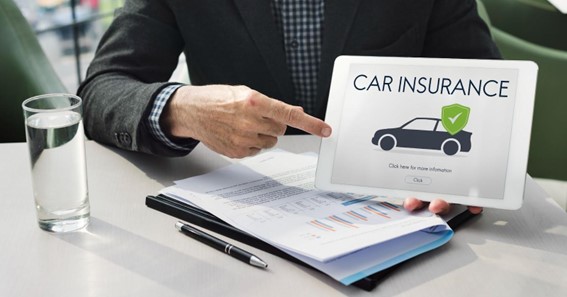The law in the UK stipulates that all vehicles must be insured, but leasing a car does not guarantee that it will be. It is an almost universal practice for leasing companies to require comprehensive insurance coverage from the delivery date to the lease’s end. But who is responsible for insurance?
Leasing agreements typically do not include insurance; therefore, you are responsible for insuring and paying for the leased car. Knowing what kind of car insurance you need can be confusing. However, by searching a comparison website such as Lease Loco, you can find lease companies that include insurance in their monthly lease payments.
This article covers important details about the types of insurance you need and what is not covered by your policy.
Click here – The Benefits of Shopping Online to Save Time and Money
What Type of Insurance Do I Need?
Selecting a fully comprehensive insurance policy for your leased vehicle is crucial in case of an accident or theft. Car dealers usually encourage you to include GAP insurance since it is an optional type of cover, and Third-party-only insurance is not appropriate for leased vehicles. When leasing a car, you will need the following types of insurance:
Fully Comprehensive Insurance
A fully comprehensive policy ensures the protection of the leasing company’s assets and must be provided before the leased car is delivered to you. Upon taking out the insurance, you will receive a certificate of proof with your name, registration number, and delivery date.
This insurance covers the following:
- Insurance cover against any damage caused to other people, their vehicles and other possessions.
- Any damage to your property (in this case, the leased vehicle) and you, should anything happen.
This type of insurance can be more expensive as you don’t own the car in a lease, so consider this when working out the total cost.
GAP Insurance
Guaranteed Asset Protection (GAP) is another optional insurance policy. If you take this out on top of your leasing agreement, there is more protection for the dealer if the car is damaged or stolen.
Almost no other significant investment depreciates as fast as a brand-new car. This should be considered to ensure that your insurance policy adequately covers you. The vehicle’s value at the time of purchase would not be reimbursed if you were to get into an accident a week after leasing, and you would still incur a cost if the value changed after a week.
A key reason why GAP insurance is crucial and recommended is that depreciation on leased vehicles means that you may owe more to the finance company than the insurance company will cover if the car is written off or stolen. A GAP policy covers this shortfall by paying the difference between the car’s current value and retail price.
Click here – Effective use of Comparison Bar Charts in Tuning Business Strategy
Third-party Insurance
The insurance coverage on a leased car must be comprehensive, not third-party. There are a couple of reasons why this type is not suitable for leased cars.
This insurance policy only covers damage to other people’s cars or property. If you have an accident, you are responsible for any damage to the leased vehicle. The problem with leasing is that you never own the car, so dealing with a damaged car you don’t own can be challenging.
Even if you have repaired the vehicle earlier, you may still be charged if you return it damaged when the lease contract ends. A lease agreement may require you to return the vehicle in the same condition you received it, resulting in you being liable for damages regardless of whether or not the vehicle was repaired.
A lease agreement requires you to return the vehicle in the same condition you received it, resulting in you being liable for damages regardless of whether or not the vehicle was repaired.
When Are You Not Covered by Your Insurance Policy?
A policy can be voided or not covered under certain conditions. You need to be aware of these conditions. Certain circumstances can void your insurance:
- An individual under the influence of alcohol or drugs will not be eligible for a claim.
- Fully comprehensive policies do not cover general wear and tear on your vehicle.
- A car that has been fuelled incorrectly by you or anyone else may not be covered for any repair costs incurred as a result.
Final Thoughts
You should compare a few options to ensure you get the best insurance deal. You shouldn’t have to pay more for insurance when you lease a car than when you buy one outright, and the cost is often very similar. If you are interested in learning more about insurance, visit https://insurancenoon.com/.
